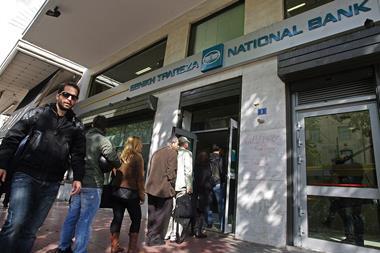In this month’s PwC Emerging Trends in European Real Estate report, Athens came out fifth in a ranking of European cities with the best prospects for 2015.

The ranking was based on a survey of 500 industry leaders completed some weeks back. It demonstrates just how quickly things can change.
The outlook for the Greek economy was looking increasingly positive as 2014 progressed, but then as momentum started to build behind the left wing Syriza party, the situation suddenly changed. Greek 10-year government bonds, which had fallen to a low of about 6% in September, began to rise again to 9% as of last week. Then after Sunday’s election bought Syriza to power, they rocketed to 11% in just a couple of days.
It must be prompting some interesting discussions at Invel, the opportunistic investor, which bought a 66% stake in the largest Greek property investor, NBG Pangaea, at the end of 2013 for €653m. NPG Pangaea was spun out of the National Bank of Greece and its portfolio includes nearly all the bank’s branches and office buildings.
Of all the real estate to be invested in right now in Greece, bank branches don’t look the most enviable. Shares in Greece’s listed banks have plummeted this week as depositors withdraw their funds. National Bank of Greece’s shares have already plunged from €1.46 to €0.94 in a couple of days. If the deposit flight turns into a full-blown bank run, National Bank of Greece could be in serious trouble and where does that then leave Invel’s investment?
The situation in Greece could prove a lesson to investors who are increasingly looking to plough money into real estate in Southern and Eastern Europe in search of higher returns. Where there is reward, there’s always risk.






























No comments yet